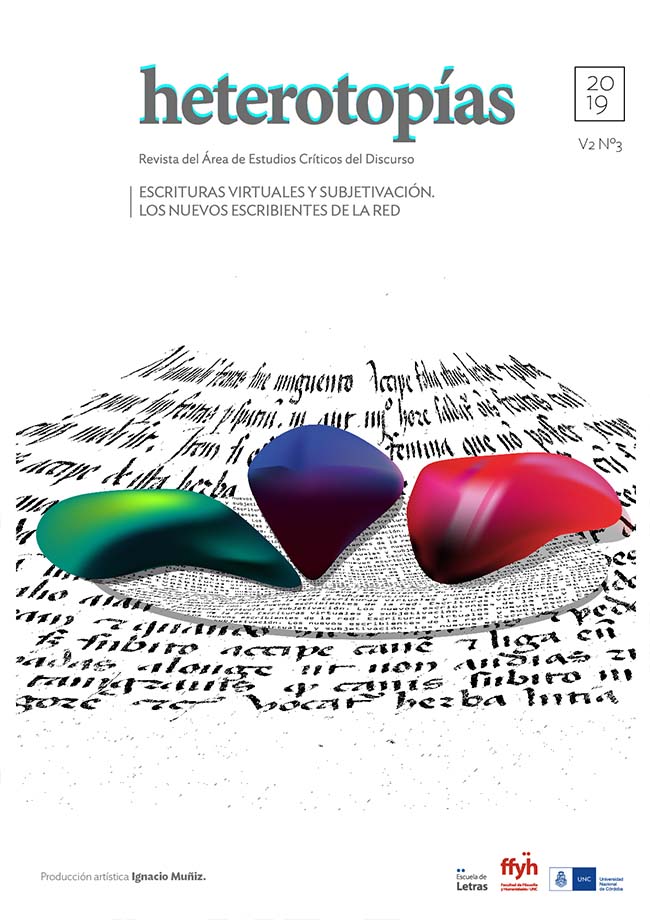Dissidence policies: i international meeting linguistic rights as human rights in Latin America
Main Article Content
Abstract
The last week of March was powerful in Córdoba. He had his preliminaries in the march of 8M and the Day of Remembrance: there were two more marches, there were multitudinous meetings that called us to demand justice, to interpellate memory, history, our societies and the political-economic conjuncture. And, when there was still the memory of those two contestatory actions, days later, on March 27, we received for the first time in Cordoba the King of Spain, Carlos Borbón, and the president of the nation, Mauricio Macri, for the opening of a magno event: the VIII International Congress of the Spanish Language, possibly the most important official event of the last decades in Córdoba.
In clear dissent, and almost in a mirror -the reverse image-, the First International Meeting took place: linguistic rights as human rights in Latin America, organized by the Faculty of Philosophy and Humanities of the National University of Córdoba. Once again, the pendulum submission-disobedience that marks the history of Cordoba showed the fragmentation of the senses on the social world.
Downloads
Article Details
Those authors who have publications with this journal, accept the following terms: Those authors who have publications with this journal, accept the following terms:
a. The authors will keep their copyright and guarantee to the journal the right of first publication of their work, which will be simultaneously subject to the Creative Commons Attribution - Non-Commercial - Share Alike (by-nc-sa) Attribution License; no commercial use of the original work or any derivative works is allowed, the distribution of which must be done with a license equal to the one that regulates the original work.
b. Authors may adopt other non-exclusive license agreements for the distribution of the published version of the work (e.g., deposit it in an institutional telematic archive or publish it in a monographic volume) provided that the initial publication in this journal is indicated.
c. Authors are allowed and recommended to disseminate their work through the Internet (e.g. in institutional telematic archives or on their website) before and during the submission process, which may lead to interesting exchanges and increase the number of citations of the published work. (See The effect of open access).
References
Derrida, J. (1997). El monolingüismo del otro. Buenos Aires: Edit. Manantial.
Del Valle, J. (2007). La lengua, ¿patria común? Frankfurt/Madrid: Vervuert/Iberoamericana.
González, H. (Comp.) (2008). Beligerancia de los idiomas. Un siglo y medio de discusión sobre la lengua latinoamericana. Buenos Aires: Colihue.
Hamel, R. (1995). Derechos lingüísticos como derechos humanos: debates y perspectivas. Alteridades, 5(10), pp. 11-23.
Kroskrity, P. (2000). Regimes of language: ideologies, polities, and identities. Santa Fe, Nuevo México: School of American Research Press.
Larrosa, J. y Skliar, C. (2001). Habitantes de Babel: políticas y poéticas de la diferencia. Barcelona: Editorial Laertes.
Moreno, M. (26 de marzo, 2019). Discurso proferido en “Desbordar la lengua”, en el marco del Encuentro Internacional: derechos lingüísticos como derechos humanos. Recuperado de https://www.pagina12.com.ar/193244-sin-aduana-ni-peaje?fbclid=IwAR3LphLMIIqxllyuW6SBOnP8Y5oJbpYFpq3OPln6UcoTjCrIHzeUYa2V1Ik.
Narvaja de Arnoux, E. y Del Valle, J. (2010). Las representaciones ideológicas del lenguaje Discurso glotopolítico y panhispanismo. Spanish in Context, 7(1), pp. 1-24.
Rossi Landi, F. (1975). El lenguaje como trabajo y como mercado. Buenos Aires: Rodolfo Alonso Editor.
Steiner, G. (2001). Después de Babel: aspectos del lenguaje y la traducción. Buenos Aires: Fondo de Cultura Económica.
